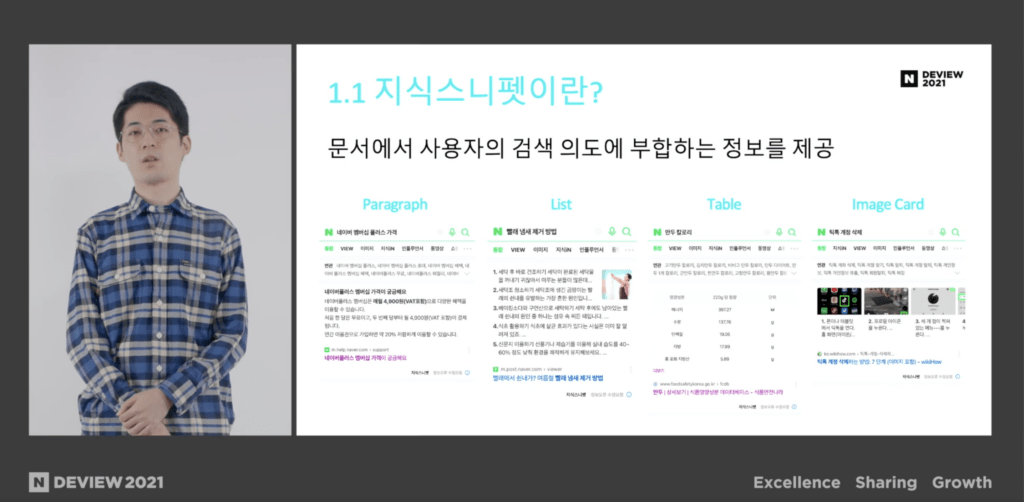In the era of modern technology, where people’s primary source to learn something is a search engine platform, such as Google, Bing, or Yahoo, it is almost impossible not to be drowned in overflowing, all-inclusive search results.
Let’s say you type “diabetes” in the search query bar on Google. Not only does it feature the medical explanation of the disease, but it also lists its causes, early warning signs, ways to prevent it, possible cures, and what kinds of types there are. Regardless of which platform you use, you will find more than what you might have expected to see.
For people who have a number of questions, with a huge curiosity, this is a good thing — they will never feel thirsty to learn more about a certain subject.
For people who look for a piece of information with a specific purpose, however, too much information can be time-consuming as they would need to find what they need from the search result again.
“One True Answer”
Considering that most people use search engines to find an answer to a question they have, shop, or kill time with some fun things to watch or read, many users might want to see a search result that can respond to their question with more direct, relevant sets of answers.
Search engines across the world understood this pain point and came up with various solutions to improve users’ experience in searching with a specific query.
For example, Google, an engine that holds 92.18 per cent of the market share in the global search engine business as of July 2019, introduced its “one-true-answer” system, dubbed as “Featured Snippet”, to improve their search result a few years ago.
A snippet is a term in programming for an area of code or text. It is understood as an extracted fraction of content from web documents featured in search listings, based on a word or a sentence that a user typed in their search box.
Google explains that its system highlights one set of information, or snippet, that seems to be the best answer to the query from all search listings.
As it is done by an automated program, powered by artificial intelligence, it may sometimes print a wrong answer to a query, but the engine says users can turn off the featured snippet function if they wish or report any incorrect results for the function to improve.

Hello, “Knowledge Snippet”
Google is not the only company that tries to arrange and manage an array of snippets to improve the user experience. Naver, the biggest search engine in South Korea, recently introduced its newest feature called “Knowledge Snippet” to provide better search results to queries.
Hwang Jae-hyun, who works in the Public Relations department at Naver, tells 4i Magazine that Knowledge Snippet is an AI-powered service that can automatically highlight a piece of information from search listings based on speculations on the users’ purposes of searching.
“Knowledge Snippet provides well-researched answers to users’ queries and makes the process of researching information easier and faster,” Hwang said.
A snippet that can answer a user’s query is placed at the top of the search result page by using Knowledge Snippet, Naver explains. The link to the source of that information is located right below the extracted information block.
What makes Naver’s Knowledge Snippet different from Google’s Featured Snippet is its AI software’s power to guess the purposes of the users’ searches.
If a user types “How to delete an account on Instagram” on Naver’s search bar, it is not hard to guess what the user needs to know — a how-to-guide on deactivating or deleting their Instagram account.
However, if a user types queries that seem hard to guess their purposes, for example, “cat blueberry”, it becomes more complicated for search engines to decipher their intentions determine which piece of information should be highlighted in the search listings.
Before answering such a query with a seemingly ambiguous intention, Naver’s Knowledge Snippet will first analyse other queries’ phrases that started with the words “cat blueberry”.
After analysing those queries, it will learn that many of them asked: “whether a cat can eat blueberries.” Then, the service categorises the relevant data and prints answers that can answer the query, like a medical doctor’s quote saying: “It is safe to feed blueberries to cats.”

Technologies Used to Extract the Right Snippet
Lee Hyun-gu, a researcher at Naver Search, explained that there are three different technologies used in the service’s operation, during his presentation at DEVIEW, a conference for developers to share their ideas held by Naver on November 24.
First is query processing technology, which breaks down phrases used in queries and analyses its purposes of searching. The second technology used is called document processing, which parses snippets, paragraphs, tables, and lists. Lastly, the service uses a tool that determines the quality of information and extracts the best snippet. The tool can extract snippets driven by either queries or documents.

What’s more, Knowledge Snippet has adopted Naver’s in-house AI tools, including HyperCLOVA, to feature suggested questions along with the highlighted snippet, Hwang says.
For example, if a user looks up “thyroid pain”, the search engine can identify similar queries to that. It then notices that the query can be categorised under the topic of disease and finds other relative, common questions, such as causes of thyroid cancer and cures to thyroid cancer. Then HyperCLOVA can auto-generate questions based on those similar searches, like “What is the cause of the thyroid cancer” or “What are the cures to thyroid cancer”.
How Can Knowledge Snippet Be Helpful
Knowledge Snippet can be useful to users who would like to keep up with recent trends or nationwide issues. It has played an important role in sharing correct, relevant information of COVID-19, for example, since the service’s introduction in May 2020, Naver says.
“The government’s response systems and policies around the virus have been constantly changing,” Hwang said. “Knowledge Snippet prioritised pieces of information that are extracted from trustworthy sources like government agencies and institutions.”
Users gave positive feedback on the service as well, even before the launch last year.
According to Naver’s survey, 99.8 per cent of the test group who tried this service said they prefer the Knowledge Snippet-applied engine more than the previous version.
Since the official launch of the service — although exact digits are unknown — Naver announced that their click through ratio of online advertisements has gone up. This may imply that the service can be helpful for not only those who wish to find and purchase products but also those who hope to boost their sales.
“Developers here have tried their best to expand the coverage of Knowledge Snippet and improve its quality since the launch,” Hwang said.
What’s Next for Knowledge Snippet
Naver’s next step will be simplifying the extraction process and integrating different technological tools into one model, Lee from Naver Search said during the presentation at DEVIEW.
The research lab aims to extract paragraphs, lists, and tables by using one technological model in the upcoming future.
“In order to do so, we are currently studying other tools, such as HTML tag embedding or multi-span prediction,” Lee added.
The search engine also plans to have suggested questions appear for more keywords and queries on the search result page. As of today, users can find suggested questions only when they look up big subjects or themes like disease and social issues.
Naver says that it will have Knowledge Snippet to cover more subjects to let users continue their research extended to the end of their curiosity.



